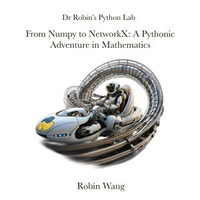
eTEXT
Time-Delayed Linear Quadratic Optimal Control Problems
By: Weijun Meng, Jingtao Shi, Jiongmin Yong
eText | 22 February 2025
At a Glance
eText
$84.99
or
Instant online reading in your Booktopia eTextbook Library *
Read online on
Desktop
Tablet
Mobile
Not downloadable to your eReader or an app
Why choose an eTextbook?
Instant Access *
Purchase and read your book immediately
Read Aloud
Listen and follow along as Bookshelf reads to you
Study Tools
Built-in study tools like highlights and more
* eTextbooks are not downloadable to your eReader or an app and can be accessed via web browsers only. You must be connected to the internet and have no technical issues with your device or browser that could prevent the eTextbook from operating.
ISBN: 9789819618972
ISBN-10: 9819618975
Series: SpringerBriefs on PDEs and Data Science
Published: 22nd February 2025
Format: ePUB
Language: English
Publisher: Springer Nature























